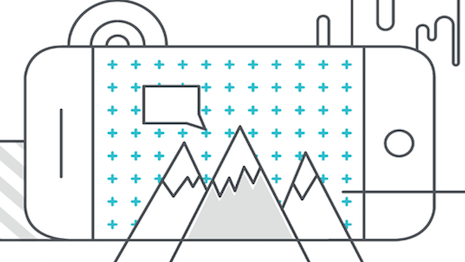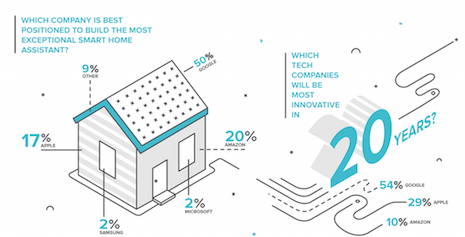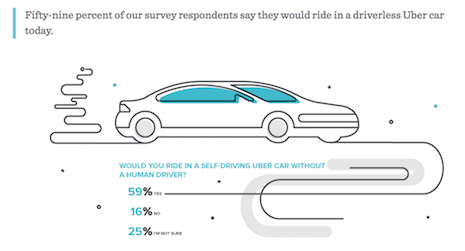 AI-enhanced tools are on the rise and consumer trust is growing. Image credit: stable|kernel
AI-enhanced tools are on the rise and consumer trust is growing. Image credit: stable|kernel
Artificial intelligence and digital concierges may soon get a boost in the luxury industry based on new data that shows 56 percent of consumers trust computers more than people.
This information comes from stable|kernel, a moile development company that looked into public opinion on AI services in mobile tech. The findings supported the idea of artificial intelligence in mobile apps, lending support to the rising tide of digital concierges.
“Innovative technology reduces human error, minimizes labor and alleviates the burden of everyday tasks so humanity has more time to explore onwards,” said Joe Conway, CEO of stable|kernel, Atlanta, GA.
“This freedom challenges our understanding of purpose and allows us to live our lives in ways we never imagined,” he said.
Mobile intelligence
The luxury industry has recently seen an influx of AI-enhanced technology that provides more personalized experiences.
Most commonly, this manifestation is in the form of chatbots and digital concierges.
These concierges can help provide customers with satisfying digital experiences without needing a human being on the part of the brand. For example, a hotel might offer a mobile application that will let customers book a room, check-in and manage their stay all without having to deal with a person.
While popular, a major concern over these features is the relative level of trust and reliability of a machine over a human being.
Google is a powerhouse in the field of AI. Image credit: stable|kernel
Data from stable|kernel found that a slim majority of people actually trust machines more than people, suggesting that these types of automated services are both valuable and trustworthy in the eyes of consumers.
Fifty-four percent of respondents to stable|kernel’s survey also said that Google is the most innovative company in this regard, lending some credence to Google’s recent efforts at more concierge-like services, such as Google Home’s ability to proactively suggest actions to users.
Respondents were also open to the possibilities of augmented reality, with 54 percent saying that AR will be more common in the next three to four years.
AI concierge
The information from stable|kernel’s report shows that the market is there for digital concierge services, particularly in the luxury world where such services are expected.
Some companies are already taking the plunge.
For example, Turing Robotic Industries, a San Francisco-based company focused on mobile technology, is releasing a new high-end smartphone that comes with a built-in concierge service.
Driverless cars are seeing similar levels of trust. Image credit: stable|kernel
Turing's smartphone is called Appassionato, meaning “enthusiast” in Italian, as well as being a play on words with the word “app.” Appassionato’s main selling point however is an on-board digital concierge named Sir Alan who, Turing boasts, can assist in managing every part of an owner's life (see story).
Similarly, Panasonic and IBM Watson are working on a new way to improve the traveling experience for consumers with a digital concierge service that lets them access all hotel services from a unique cloud-based service.
The partnership is still in its early phases. The two will also work on a separate mobile app that will allow consumers to interact with digital signage through their phones (see story).
Expect more digital and AI-enhanced concierges along with automated services from luxury companies as both the desire for and comfort with AI continues to grow among the public.

